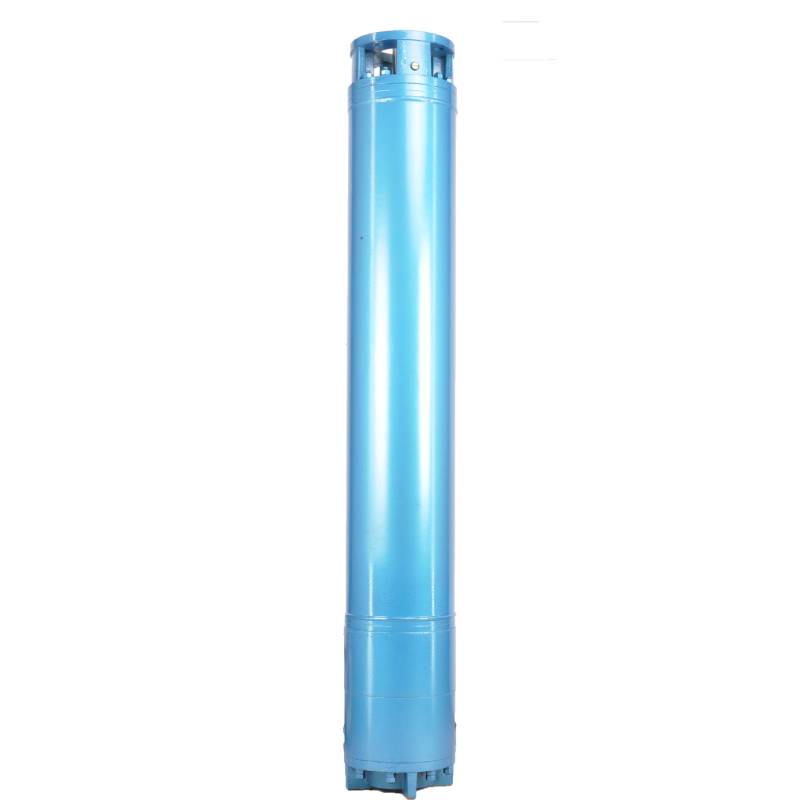Oct . 02, 2024 09:51 Back to list
repairing a submerged pump for optimal performance and efficiency in water systems
Fixing Submersible Pumps A Comprehensive Guide
Submersible pumps are essential devices widely utilized in various applications, ranging from residential drainage to industrial wastewater management. These pumps are designed to be submerged in the fluid they are pumping, which allows for efficient operation and minimized environmental impact. However, like any mechanical device, submersible pumps can experience issues over time. Knowing how to fix a submersible pump can save you time and money, ensuring smooth operations in your applications.
Understanding Submersible Pumps
Before diving into the repair process, it's crucial to understand how submersible pumps work. Typically, these pumps consist of a motor that is hermetically sealed and submerged in the liquid it is designed to pump. The motor drives an impeller, which helps lift the liquid to the surface. Common causes of failure include electrical issues, wear and tear, blockages, and physical damage.
Symptoms of a Malfunctioning Pump
Recognizing the symptoms of a failing submersible pump is the first step in addressing the problem
. Some common signs include1. No Power If the pump fails to operate, check the power source. Ensure that the circuit breaker is not tripped and that the power supply is functioning. 2. Inconsistent Flow Fluctuations in flow rate can indicate blockages in the impeller or piping. Debris can accumulate and hinder performance. 3. Unusual Noises Grinding or rattling sounds may suggest mechanical issues, such as worn bearings or a damaged impeller.
4. Overheating If the pump becomes hot to the touch, it may be running dry or overloaded, leading to potential motor burnout.
Steps to Fix a Submersible Pump
Fixing a submersible pump involves several steps. Below is a structured approach to diagnosing and repairing common issues
fix submersible pump

1. Safety First Before beginning any repair work, ensure that the pump is disconnected from the electrical supply to prevent accidents.
2. Inspect the Power Supply Use a multimeter to check if the power supply is delivering the appropriate voltage. Repair or replace any faulty wiring or connections.
3. Check for Blockages Remove the pump from the liquid. Inspect the intake screen and impeller for clogs. Clean any debris that may be causing obstruction.
4. Examine Mechanical Components Inspect the motor and impeller for signs of wear. If the impeller is damaged, replacing it may be necessary. Similarly, check the bearings and seals for degradation.
5. Test the Float Switch If the pump is not starting or stopping correctly, the float switch might be stuck or malfunctioning. Ensure it's free to move and functioning properly.
6. Reassemble and Test Once repairs are made, reassemble the pump and reconnect it. Test the pump in the fluid to ensure proper operation.
Maintaining Submersible Pumps
After you have successfully repaired your submersible pump, regular maintenance is essential to prevent future issues. Periodically check for blockages, inspect electrical connections, and keep an eye on fluid levels. Implementing a routine maintenance schedule will prolong the pump's lifespan and ensure efficient operation.
Conclusion
Fixing a submersible pump may seem daunting, but with the proper knowledge and tools, most issues can be resolved. Understanding the symptoms of failure and following structured repair steps make it easier to get your pump back in working order. Always prioritize safety and consider professional help for complex repairs. Maintaining your submersible pump will not only enhance its performance but also provide peace of mind for all your pumping needs.
-
Submersible Water Pump: The Efficient 'Power Pioneer' of the Underwater World
NewsJul.01,2025
-
Submersible Pond Pump: The Hidden Guardian of Water Landscape Ecology
NewsJul.01,2025
-
Stainless Well Pump: A Reliable and Durable Pumping Main Force
NewsJul.01,2025
-
Stainless Steel Submersible Pump: An Efficient and Versatile Tool for Underwater Operations
NewsJul.01,2025
-
Deep Well Submersible Pump: An Efficient 'Sucker' of Groundwater Sources
NewsJul.01,2025
-
Deep Water Well Pump: An Efficient 'Sucker' of Groundwater Sources
NewsJul.01,2025
-
 Submersible Water Pump: The Efficient 'Power Pioneer' of the Underwater WorldIn the field of hydraulic equipment, the Submersible Water Pump has become the core equipment for underwater operations and water resource transportation due to its unique design and excellent performance.Detail
Submersible Water Pump: The Efficient 'Power Pioneer' of the Underwater WorldIn the field of hydraulic equipment, the Submersible Water Pump has become the core equipment for underwater operations and water resource transportation due to its unique design and excellent performance.Detail -
 Submersible Pond Pump: The Hidden Guardian of Water Landscape EcologyIn courtyard landscapes, ecological ponds, and even small-scale water conservancy projects, there is a silent yet indispensable equipment - the Submersible Pond Pump.Detail
Submersible Pond Pump: The Hidden Guardian of Water Landscape EcologyIn courtyard landscapes, ecological ponds, and even small-scale water conservancy projects, there is a silent yet indispensable equipment - the Submersible Pond Pump.Detail -
 Stainless Well Pump: A Reliable and Durable Pumping Main ForceIn the field of water resource transportation, Stainless Well Pump has become the core equipment for various pumping scenarios with its excellent performance and reliable quality.Detail
Stainless Well Pump: A Reliable and Durable Pumping Main ForceIn the field of water resource transportation, Stainless Well Pump has become the core equipment for various pumping scenarios with its excellent performance and reliable quality.Detail
